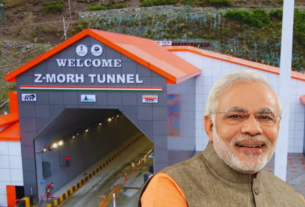The BBC has issued a formal apology to former U.S. President Donald Trump over a misleading edit of his January 6, 2021 speech, which aired on the broadcaster’s “Panorama” program. While the BBC acknowledged the error, it maintained that it did not defame Trump, effectively rejecting the basis for his threatened $1 billion lawsuit.
In a personal letter to the White House, BBC Chair Samir Shah expressed regret over the edit that presented portions of Trump’s speech in a way that suggested he directly called for violence. The controversial documentary spliced together quotes from two sections of the speech, delivered nearly an hour apart, making it appear as though Trump urged supporters to “fight like hell.” The program aired days before the 2024 U.S. presidential election.
The BBC clarified in its retraction: “We accept that our edit unintentionally created the impression that we were showing a single continuous section of the speech, rather than excerpts from different points in the speech, and that this gave the mistaken impression that President Trump had made a direct call for violent action.” The broadcaster confirmed there are no plans to rebroadcast the documentary.
Trump’s legal team had demanded a formal apology and a “full and fair” retraction, citing reputational and financial harm. Though experts say pursuing a lawsuit in English courts would be difficult, Trump could potentially use the incident as leverage.
The controversy has already led to high-profile resignations within the BBC. Director-General Tim Davie and news chief Deborah Turness stepped down, acknowledging the damage caused to the corporation’s credibility. The BBC is reportedly investigating whether a similar edit occurred in a 2022 Newsnight broadcast.
This episode highlights the immense scrutiny media organizations face when reporting on politically charged events. Even large institutions like the BBC can make mistakes, and their human side—apologizing, taking responsibility, and correcting errors—reminds us that transparency and accountability remain essential in journalism.





